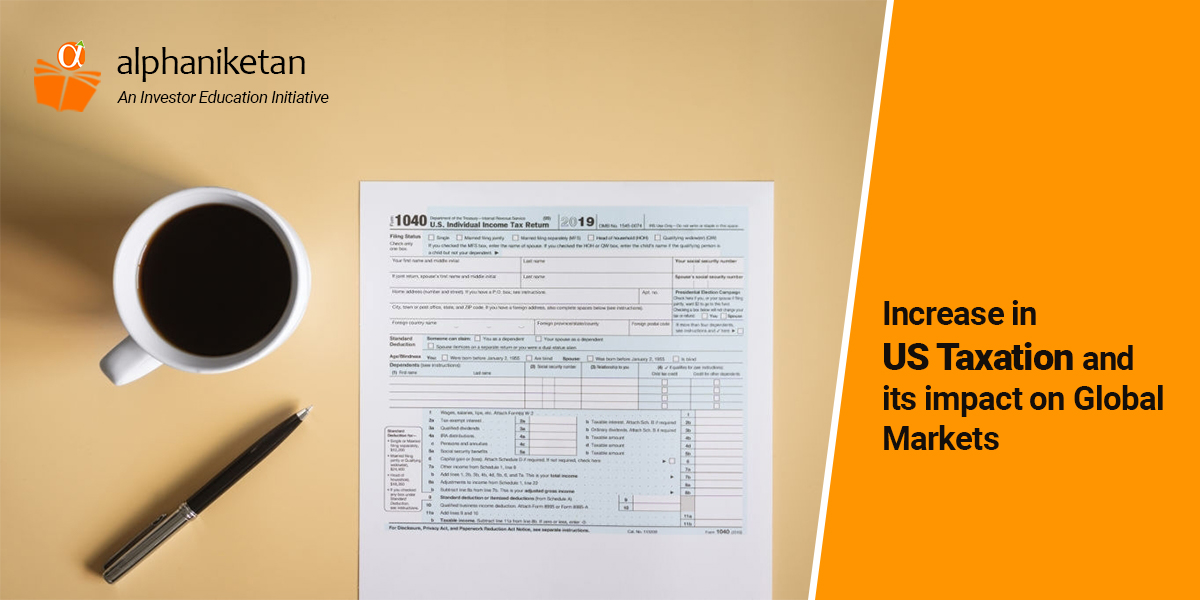After the Global Financial Crisis in 2008, regulators have become swift in responding to a crisis. At the first indication of macro-economic variables turning unfavorable, monetary & fiscal stimulus is unleashed by governments across the globe. Take the case of the recent crisis: The Covid-19 pandemic. The pandemic came at a time when globally governments were favoring a cycle of tax cuts to stimulate their respective economies further. However, to fight the slowdown caused by the Covid-19 pandemic, world over monetary and fiscal measures had to be announced over the past 12 months. Budget & fiscal deficits have hit the roof. The US has announced one of the largest stimuli in its history so far and is expected to go ahead with yet another US$ 2 trillion infrastructure spending program to push through more fiscal stimulus in the US Economy. Though this stimulus is expected to revive the capital expenditure cycle in the US economy, this has finally come at a significant cost which no one is prepared to face: Yes, the latest proposal to increase taxes by President Joe Biden’s administration has now added to the worries of investors.
In the US, the corporate tax rate was cut to 21% from 35% in CY2017. This is expected to reverse; at least partially. The Capital Gains Tax may also go up for certain investors. While the former is expected to hit corporate earnings growth, the latter is expected to hit relatively wealthy investors’ post-tax returns on investments that had been kept out of exempted pension plans. In sum, this may build negative sentiment. However, this may not be as bad as it sounds – at least it is not expected cause any sustained crash in the US markets.
Various studies so far have made it clear that there is no direct co-relation between movements in stock price and tax rates. Research from UBS Global Wealth Management shows that earnings multiples of the S&P 500 can range from roughly 8 times to as high as over 20 times regardless of whether Capital Gains Taxes are at 15% or nearly 30%.
But corporate taxes do have a short-term impact on corporate earnings. For example, a tax rate of 25% should lead to 3-4% fewer earnings growth than expected in FY22. A few key sectors may see earnings’ impact ranging between 6% and 10%. Earnings’ growth estimate of technology sector stocks and financials in the S&P 500 index may fall by 9.2% and 6.2% respectively. These estimates can be a cause of concern for investors. They may have to re-look at the composition of their portfolios.
In such a situation, growth stocks are likely to be impacted as most of these stocks enjoy extremely rich valuations. However, it is recommended that investors hold on to growth stocks for a longer duration as that is the only way they can reduce the impact of taxes on their gains and ride out any near term volatility. As regards value stocks, they are typically influenced by short-term movements in the market and the broader economy. That makes many investors sell them if this hypothesis plays out and stock valuations correct. But selling involves paying taxes. Thus, investors may look at long-term structural growth stories over any strategy expected to lead to profit-booking in the short-to-medium term. In other words, pension funds may emerge as a preferred means of investment for many. Hedge funds or vehicles focused on short-term strategies may not attract high investors’ interest.
Biden’s proposals to increase taxes on corporations may lead to mixed responses from corporate America. Some companies looking to enter the US may postpone their plans. Some manufacturing and service oriented industries may choose an offshoring model. This means a few emerging economies such as India, Taiwan, Korea, and Vietnam may benefit. This is quite advantageous especially when the world is looking beyond China after the Covid-19 pandemic. Investors may also want to invest in emerging markets as these markets offer high growth in earnings and relatively stable or stronger currencies to earn better post-tax returns over the long term. Investors may shift monies to high-yield risk assets from low-yield asset classes to ensure healthy post-tax returns. This may become especially prominent in the event of sticky inflation which seems to be a likely scenario going into 2021-22. Last but not the least, the tax impact on US stocks and global equity markets may be minimal if Biden hikes taxes in a calibrated manner. Whatever be the case, the expectation of change in taxes will underline the focus on long-term investing and geographical diversification.
Thank you for reading this post, don't forget to subscribe!





Pingback: How will the increase in taxation in the US impact global markets? – Alphaniketan - FinMedium